Before the quarter began, students wrote about a place that they found was most:
[Choose one] Comfortable Connected Sustainable Livable
As we inaugurated our first class session today, we shared our definitions for each of these adjectives and brainstormed different ways we might measure levels of comfort, connectedness, sustainability and livability.
Feeling "integrated" with the city -- both in terms of infrastructure and psychically -- and a sense of "belonging" were important factors both for comfort and livability. The culinary themes also came up in several definitions, including ease of access to food and the degree of deliciousness.
[Choose one] Comfortable Connected Sustainable Livable
As we inaugurated our first class session today, we shared our definitions for each of these adjectives and brainstormed different ways we might measure levels of comfort, connectedness, sustainability and livability.
Feeling "integrated" with the city -- both in terms of infrastructure and psychically -- and a sense of "belonging" were important factors both for comfort and livability. The culinary themes also came up in several definitions, including ease of access to food and the degree of deliciousness.
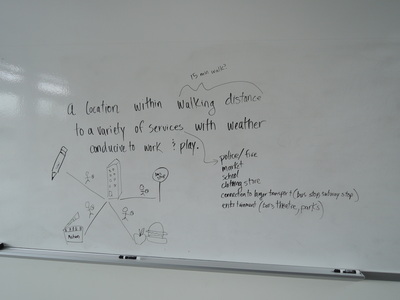
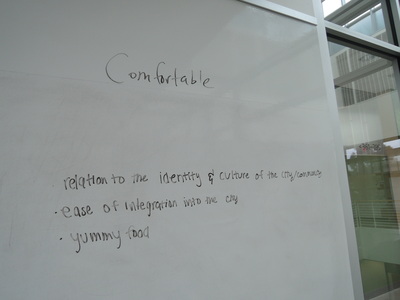
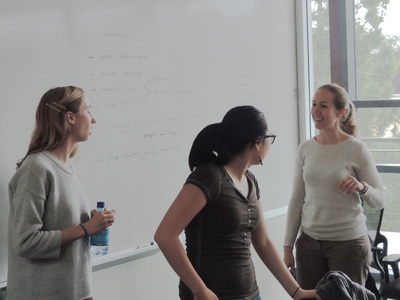
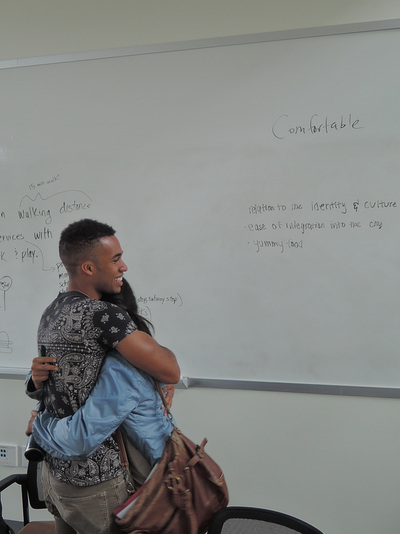
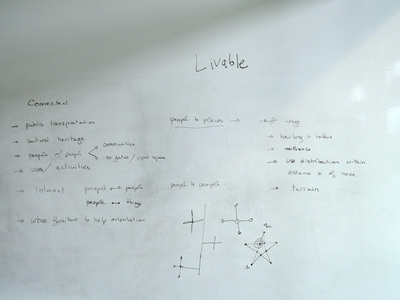
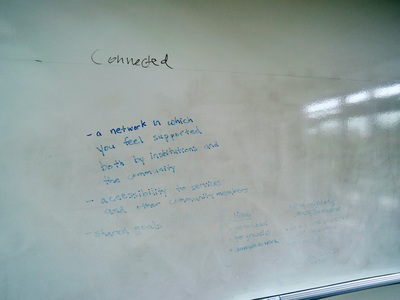
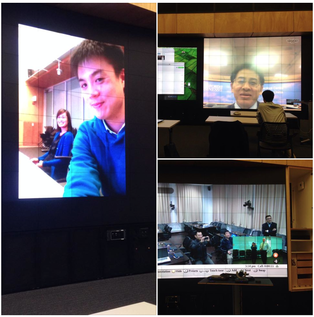
 RSS Feed
RSS Feed
